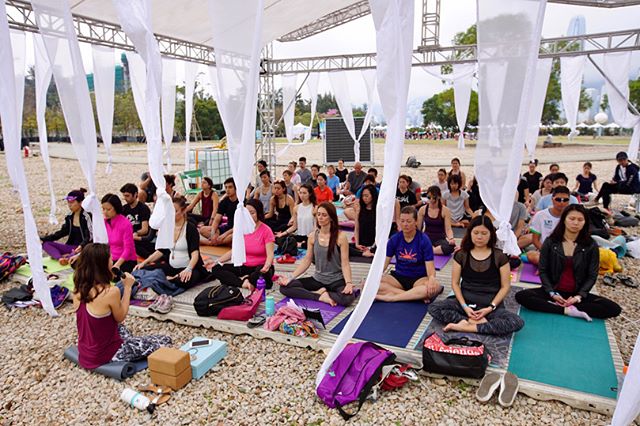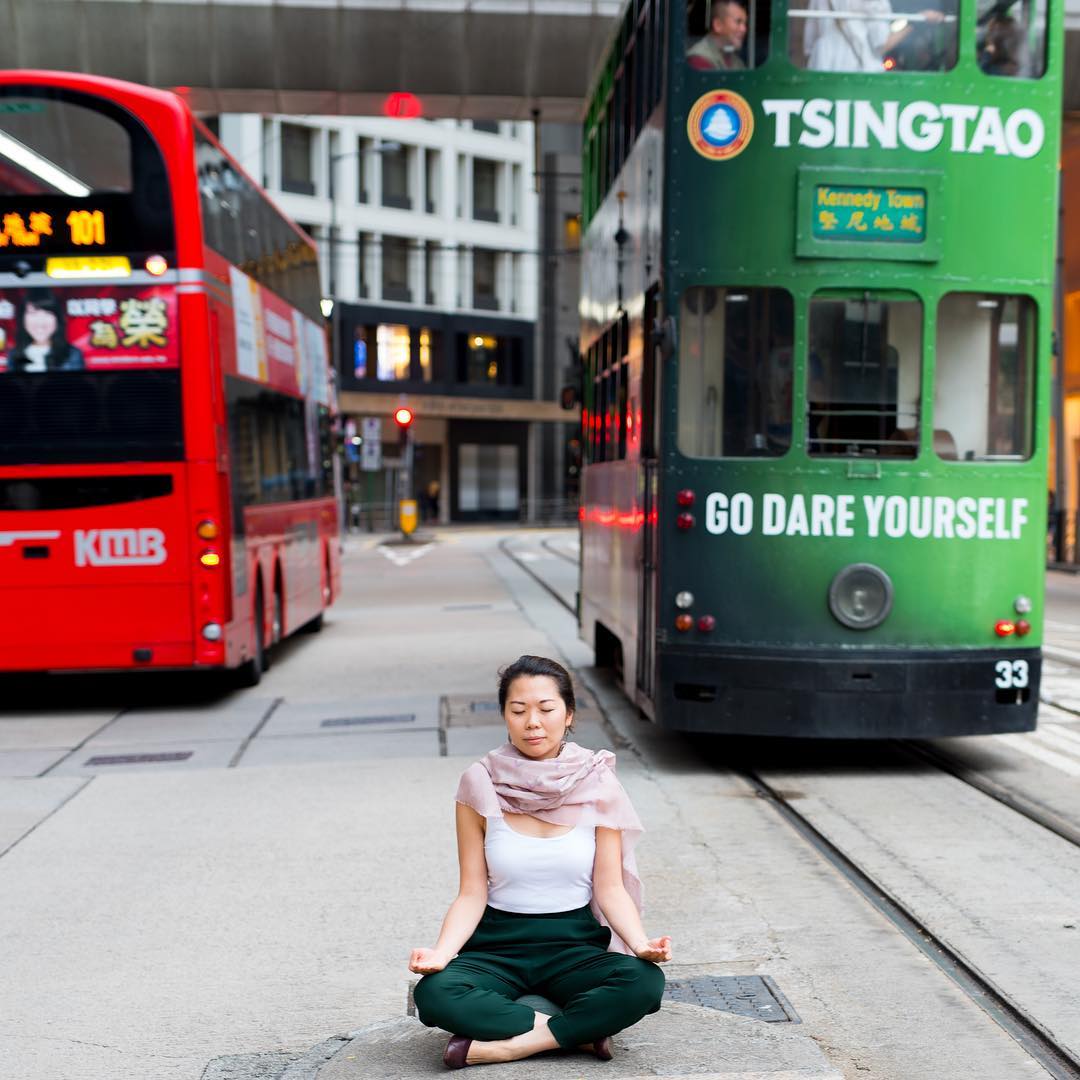"Meditation", "Mindfulness" - buzzwords in our modern world with the rising uptake from industry thought leaders and key influencers including CEOs in top businesses, startup founders, celebrities to yogis. These two keywords are sometimes used interchangeably. There are many forms of meditation, with mindfulness being a type of meditation, where you bring your full attention to an object.
Are they one of those things where you think you understand, but yet, can't seem to explain in your own words?
It seems pretty simple on the surface - living in the moment and accepting each moment for what it is. And yet, when situations arise and become difficult, or more commonly, when people become challenging, being mindful is pretty much the last thing on our minds!
We got in touch with meditation & mindfulness coach, Kit Lee of sitsat to dissect some common myths amongst beginners who have just kickstarted their journeys. What difference would it make if you had no limitations on self?
Catch Kit LIVE LIVE at LIMITLESS: Breaking Free from Limiting Barriers & Living Consciously (HK), with #teambusywoman.

“I can’t meditate” is one of the most common comments I get when some people learn that I am a meditation instructor. And then I chuckle, because those were my exact words when a friend suggested meditation to me three years ago. Since I have walked this same path, let me just share this with you – Everyone can meditate. Are you limiting yourself right from the start?
To clarify some common misconceptions:
Meditation is not about stopping your thoughts or blanking your mind.
We can have up to 60,000 thoughts a day; so, “I can’t stop thinking!” is accurate, because that’s the nature of our mind! Our minds are made to think, just like our eyes are made to see. The point of meditation is not to stop the thoughts - it is to be aware of them, and mentally nudge yourself back to your meditation practice.
Thoughts will always be there.
You may notice that you have repeatedly wandered off too many times during a session, but that’s okay, because meditation is a practice and that is all part of the process.
There are many ways to meditate.
Another common misconception is people assume there is only one type of practice in meditation.
There are many ways to meditate, just like there are many ways to exercise. If you previously tried yoga and did not enjoy it, you probably are not going to stop exercising. You may go search for the workout that you might like more, be it circuit training, crossfit, running, or spinning. It is the same for meditation. You need to find the practice that resonates with you. There are breathing, body scans, mantra, loving kindness, gratitude, and many more.
Explore YouTube, download some apps (Headspace, Calm, Insight Timer), and you just might chance upon the types of meditations that work for you!
You can train yourself to be the master of your own mind and your own life.

Meditation changed my life. Thinking back, despite the misconceptions I had, I am so grateful that I downloaded Headspace and gave meditation a try three years ago. If I never knew meditation, I would never have been able to get out of the rut I was in at that time, changed my career (which I also didn’t think could have happened), and now, transition to be a meditation & mindfulness coach.
Meditation enabled me to have a clearer mind - to gain clarity and access my authentic self. My experience is consistent with neuroscientists’ findings where our pre-frontal cortex, the part of the brain responsible for awareness, decision-making and concentration, becomes thicker with a consistent meditation practice. Neuroscientists looked at MRI scans of meditators and non-meditators and they found that we can rewire our brain to bring physical, mental, and emotional benefits to ourselves.
What Would I Be If I Had No Limitations?
My biggest learning in my journey is we are often the ones stopping ourselves from our possibilities. What we believe in may not necessarily be true. And once we remove the limits that are in our head, that is when we live our authentic self.
Try this: why don’t you try asking yourself these simple questions instead, “What would I be if I had no limitations?” or “How would I live my life without that thought?”
And now, I will leave you to experience the answers to those questions...
Article contributed by Kit Lee. She set up sitsat with the mission to demystify meditation - to make it more accessible and approach mindfulness in a scientific way.
Photos by: Tammy Mores
Other reads: Stories Overheard - On Self-Limiting Barriers
Should you be looking to partner with us on online content or offline events, or have any suggestions on how we can better facilitate the conversation, please drop us an email at [email protected].

